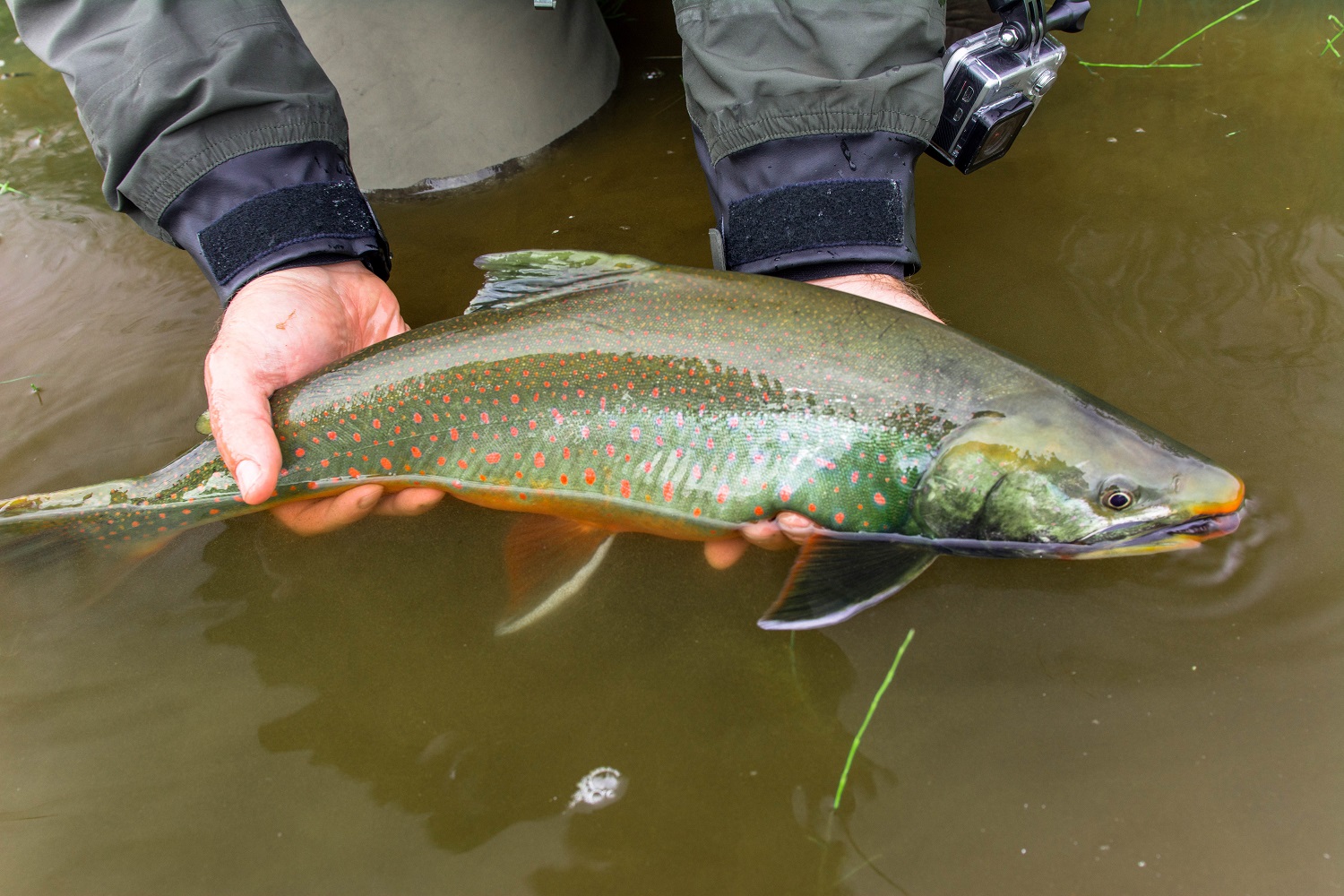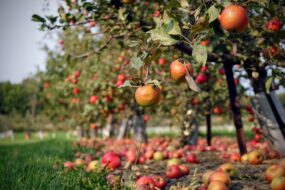November 8, 2023 • Life for Leaders
Scripture — Matthew 6:28b-29 (NRSV)
Consider the lilies of the field, how they grow; they neither toil nor spin, yet I tell you, even Solomon in all his glory was not clothed like one of these.
Focus
Jesus as well as the ancient Hebrew poets who gave us the psalms take time to admire that lavish beauty of creation, and to see it as a meaningful part of God’s plan—and a pointer back toward the beauty and creativity of God himself. Jesus exhorts us to do so also.
Devotion
My September 9 Life for Leaders_devotion was inspired in part by a passage from Jesus’ famous Sermon on the Mountain, in which he exhorted his followers to “consider the lilies” and to “look at the birds of the air.” Those who seek to follow Christ today would also do well to heed that exhortation: to take time to consider the lilies—and also the mountains, trees, rivers, and clouds as well as the wild creatures of the skies, the hills, and the oceans, much as the author of Psalm 104 does. Today and tomorrow I continue with that theme. If you haven’t done so yet, you might want to read that earlier devotion, or Psalm 104.
 In August of 2017, I stood in a small river in Alaska’s Bristol Bay drainage briefly holding in my hands—with most of its body below the water’s surface so it could stay cool and wet and continue to breathe—a beautiful species of fish known as a Dolly Varden char.
In August of 2017, I stood in a small river in Alaska’s Bristol Bay drainage briefly holding in my hands—with most of its body below the water’s surface so it could stay cool and wet and continue to breathe—a beautiful species of fish known as a Dolly Varden char.
I was once again moved and inspired as I admired the beauty of that fish. Extravagant beauty. Lavish beauty. Breathtaking beauty. God had decorated this fish with a palate of colors I couldn’t even have imagined: green sides that might have been carved from emerald; fluorescent lavender spots that popped out like exuberant splatters of paint from the emerald; all accentuated by bright orange and yellow lips that looked like those of a child who had gotten into a drawer full of costume lipstick.
This was not the first Dolly Varden char I had caught in my life, but it was one of the most beautiful. It is a beauty I never grow tired of admiring. What a world we live in that God has made such creatures as these! What a God we worship!
My friends David O’Hara who was with me on the trip (and moments earlier had caught, held, and released a Dolly Varden very similar to mine), and Glen Alsworth, Jr. (who runs The Farm Lodge in Lake Clark National Park and was guiding us that day) had similar admiration for the fish. Both of them—fellow followers of Christ whose appreciation for and knowledge of creation is a continued inspiration to me—knew to give thanks and glory to the Creator for that work of art, and our privilege of catching a glimpse of it.
There are opposite errors one can fall into when encountering the beauty or magnificence of creation. One error (often associated with pagan religions) is to worship the creation rather than the creator: to make gods out of maple trees, mountains, or moose. But the opposite error (more common in the post-Enlightenment world including the American culture I grew up in) is to dismiss altogether the beauty and meaningfulness of nature: to see the world as a meaningless, accidental byproduct of purposeless random chance, or as so much raw material to be valued only economically, or only a resource to be consumed.
Even as Genesis 1 speaks of God repeatedly looking at creation and proclaiming it good, so also does Jesus in his Sermon on the Mount speak of the lavish beauty of creation that can be seen in a single flower: the handiwork of God that exceeds all the glory even of Solomon’s kingdom. Jesus also points out that God cares for his creation—even the little sparrow—echoing an idea often repeated in Psalm 104. And Paul in Romans 8:19-23 writes of God having a redemptive and restorative plan being for all of creation, and not merely for his image-bearing humans.
If Jesus and the psalmists can admire that lavish beauty of creation and see it as a meaningful part of God’s plan, and indeed a pointer back toward the beauty and creativity of God himself, so also can we. Indeed, Jesus exhorts us to do so.
Reflect
When did you last experience the beauty of creation in a moving or meaningful way? How has that beauty impacted you?
When do you take time to intentionally consider (or reflect on) flowers of the field, birds of the air, or other aspects of God’s handiwork?
Act
Take time today or tomorrow or this coming week—perhaps on your Sabbath day of rest—to be intentional about spending time reflecting on creation.
Prayer
Lord, we join with the author of Genesis in saying that your world is good. We join with the author of Psalm 104 in affirming your care for creation, and the purposefulness in how it has been shaped. And we join with Jesus in admiring the lavish beauty of your handiwork. We praise you for giving us the spiritual eyes to understand that all such beauty and goodness comes from you. Amen.
Find all Life for Leaders devotions here. Explore what the Bible has to say about work at the High Calling archive, hosted by the unique website of our partners, the Theology of Work Project. Reflection on today’s Life for Leaders theme can be found here: Nature’s Antidote for Worry.
Subscribe to Life for Leaders
Sign up to receive a Life for Leaders devotional each day in your inbox. It’s free to subscribe and you can unsubscribe at any time.

Matthew Dickerson’s books include works of spiritual theology and Christian apologetics as well as historical fiction, fantasy literature, explorations of the writings of C.S.Lewis and J.R.R.Tolkien, and books about trout fishing, fly fishing, rivers, and ecology. His recent books include: Disciple Making in a Culture of Power, Comfort, and Fear and The Voices of Rivers: Reflections on Places Wild and Almost Wild. He was a 2017 artist-in-residence at Glacier National Park. He lives in Vermont with his wife, dog, and cat, not far from three married sons, and is an active member of Memorial Baptist Church. Matthew is also a professor of computer science at Middlebury College in Vermont.




